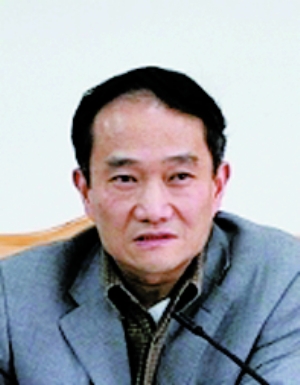 |
|
Zhao Zhenxian, deputy director of the Department of Inspection of Sichuan Province, talks about how to supervise investments effectively. |
A stimulus package estimated at 4 trillion yuan (about 570 billion U.S. dollars) will be spent over the next two years to finance programs in ten major areas, such as low-income housing, rural infrastructure, water, electricity, transportation, the environment, technological innovation and rebuilding in disaster-hit areas – most notably Sichuan following the May 12 earthquake. However, it appears that the system to supervise these investments is far from ideal, Beijing News reported.
The Central Committee of the China Democratic League, one of the eight non-Communist parties in China, has made a proposal to the Chinese People's Political Consultative Conference (CPPCC), the country’s top political advisory body which concluded its 10-day annual session in Beijing today, that the government should establish and reinforce a supervisory system for state investments.
The China Democratic League says in the proposal that working from the existing system, it is difficult to ascertain which department should be held responsible for any unsuccessful investment. The party therefore suggests that the government optimize the check-and-balance system and strengthen audit supervision.
One quarter of the 4 trillion yuan investment will be used in post-quake reconstruction in Sichuan Province. In an interview with the Beijing News, Zhao Zhenxian, a CPPCC member and deputy director of the Department of Inspection of Sichuan Province talked about how to supervise the investment effectively.
Dialogue:
B-Beijing News
Z-Zhao Zhenxian
B: As we know, post-quake reconstruction is a critical concern. How will the supervision work be carried out?
Z: As far as I am concerned, most of the programs have already been defined. Public tendering for these programs is now open. More than 200 observers have been sent to the spot.
B: Have you uncovered any problems?
Z: In general the situation is good. But there have been problems in some small projects and the officials responsible have been discharged.
B: What are the characteristics of the inspection work?
Z: Both the central government and the public have given unprecedented attention to the use of this 4 trillion yuan, which has required us to behave in strict accordance with procedures.
Twenty-four inspection teams have been dispatched by the Central Commission for Discipline Inspection to involve themselves in the supervision and disbursement of funds in the preparation phase of the programs, which is unprecedented. There is a strict procedure, including the approval of the National Development and Reform Commission, and the Ministry of Environmental Protection and the Ministry of Land and Resources, before a program can be authorized.
B: The current system is capable of uncovering individual cases of economic crimes and dereliction of duty, but does not have the scope to look at the overall question of whether a project is a failure. Can you comment on this?
Z: You are right. The established mechanism has its limitations. We don't have a specific accountability system for unsuccessful projects. But if a project has resulted in significant losses and adverse social impact, we will deal with those responsible in accordance with the law.
B: The China Democratic League has proposed that the NPC should supervise investments. Is this feasible?
Z: It is a good idea to introduce a third party to exercise the overseer’s function. But it is hard to say if NPC is the best choice. From my point of view, decentralized supervision by the public is the best approach. For example, in the rural areas of Sichuan, the Villagers Committee has played a key role in reconstruction. Villagers can express their views and exercise the supervision function through the committee.
(China.org.cn by Xiang Bin, March 12, 2009)